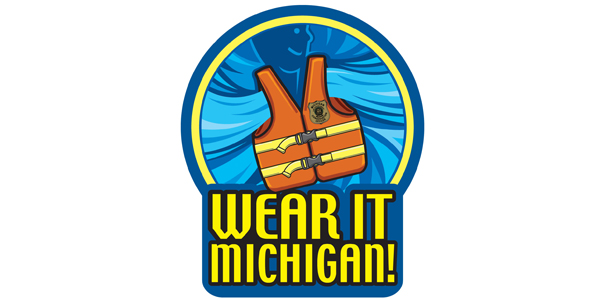
BOAT SMART
"FOR SAFETY ON THE WATER PREPARE BEFORE LAUNCH"
By Capt. Fred Davis
Next month - May is SAFE BOATING MONTH so it’s a good time to get started checking your boat and its equipment. Some of you may have already been out fishing or cruising. If you failed to check everything out, it may not be too late.
If you are among the many that left your boat in storage, inside or out, it is extremely important you have everything ready to be able to enjoy a season of boating. There are a number of things you should do to prepare your boat, motor and trailer for the summer’s season. If you don’t believe you are qualified to do your own maintenance, take your rig to a nearby marine service facility and ask them to perform any necessary service and check items you are unable to.
Simple things you can do yourself are; check the expiration date on your flares, if near expiration, or expired replace them. Check your battery; make sure all cells are chargeable. If one cell is weak, it can pull the other cells down and the battery will quickly lose its charge especially if you are running several electronics. While checking your battery, clean the terminals and connecting wires or leads. If they are not clean use a wire brush, sandpaper, a scraping device or electrical connection cleaner. After completing your battery check, place it in an approved container with a secured cover and hold down device. Remember the cover must fit and remain in place during pounding in rough seas. While working in or near the bilge area, take the time to clean it. Take a look at the drain plugs. In the past few years I’ve found plugs made with steel parts rusted and the plug falls apart leaving an open hole in the boat.
If your boat is an inboard, I/O or a certain type of outboard, it has V-belts that need checking. Change them if they are cracked, dry or shinny on the sides from slipping. While checking or replacing belts, be sure to adjust the tension as advised in your owner’s manual. Check fuel filters, water separators and fuel lines. If you see any signs of cracking, leaking, rubbing or wear, replace them. Problems with these items are becoming common with the use of modern fuels that contain additives; alcohol or methanol.
Various problems can be detected by checking your spark plugs, if qualified do so or have your mechanic check them.
While checking your power source, take a look at your water pump. Pump impellers often take a set during the off season. When engaging the pump, vanes break off and plug or restrict your cooling ability. This action can severely damage your engine.
Once satisfied your all set inside your boat, turn the lights on and be sure all bulbs are lit. If not, it is much easier to replace them on shore than bouncing along on the water. Continue to check all your electronics for proper operation referring to your owner’s manuals for reference.
Before preparing to launch, if you trailer your boat the trailer also needs to be looked over. Check the tires, if worn – especially unevenly, replace them and perhaps adjust the axels. Using blocks of wood or jacks, lift each wheel off the ground. Give the wheel a hard spin and listen for rubbing or the bearings growling. If you detect these sounds, remove the wheel and clean and grease or replace the bearings. Perhaps repacking may be all that is needed.
When checking the wheels look over the springs. If they are cracked or loose, replace them. Once again my advice is this job is much easier done at home than on the side of the road. Check for rust around the coupler and check the lights and brakes. Be sure to go over the winch cable or strap. When checking these items, pull out 5 or 6 feet of the cable because a break will usually occur within the first 3 or 4 wraps.
Most states require hold down straps that hold the boat solid to the trailer. Check with your dealer, or a local marina about brake requirements for the trailer. Many states have changed from brakes on one axle to brakes at each wheel. Laws vary depending upon the rigs weight.
I have towed boats thousands of miles and could provide a long list of experiences I endured or witnessed. Once I was traveling down I-94, just outside of Ann Arbor, behind a large boat being trailered. It was a very windy day and I could hardly believe what I saw. As a large truck passed the boat on the trailer, a gust of wind lifted the boat off the trailer and it swung over and landed upon a small car. The people in the car survived but were injured. In this case not only was a small car demolished, the boat was probably damaged beyond repair. After seeing this event, I became a serious advocate of tying down the stern of any boat to the trailer when going over the road.
My check list noted above is not intended to represent all items you should do to prepare your boat for the water but it sure can get you started. If well prepared, you will not hold anyone up at the launch ramp.
Return to Home Page of Tipsforboating.com